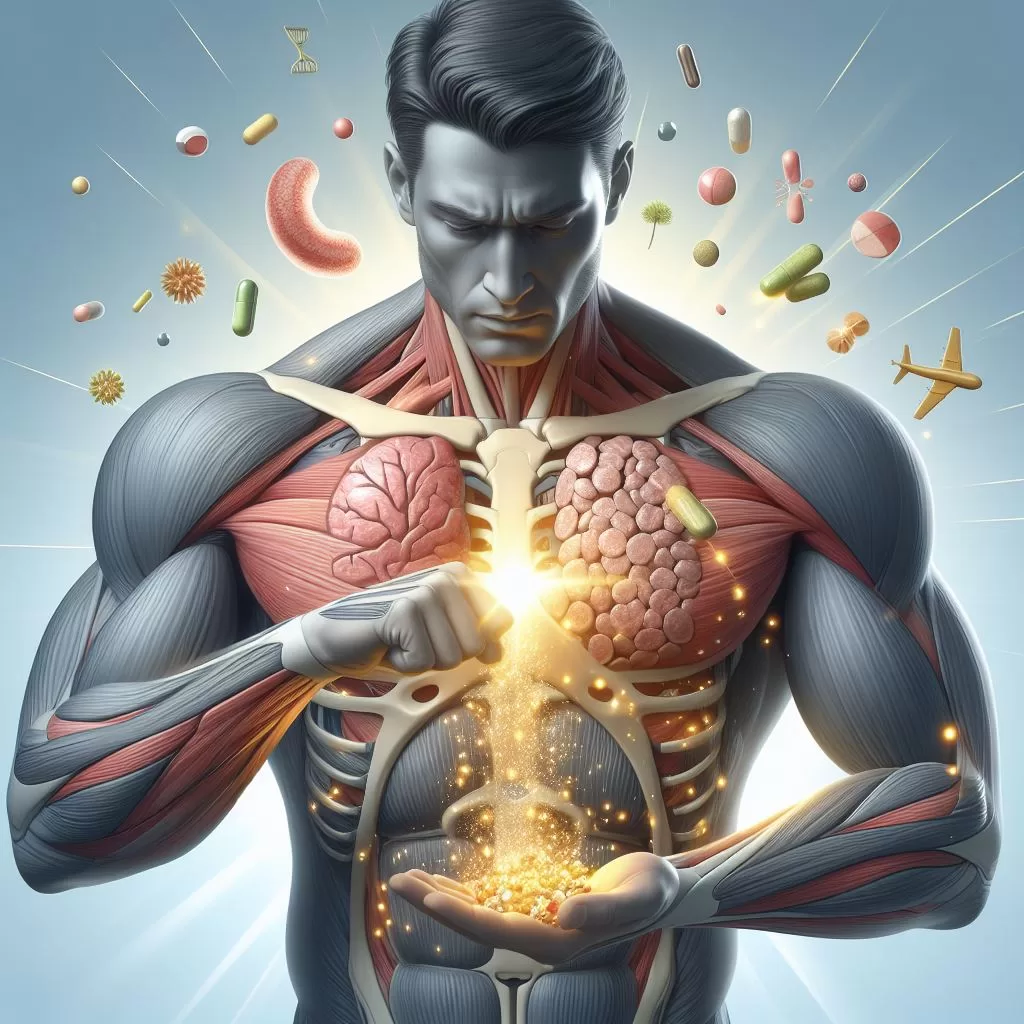Zinc is an essential trace element that plays a crucial role in supporting proper human body functions. This article will explore the importance of zinc in metabolism and how it affects various biochemical processes in the body.
1. The Metabolic Role of Zinc:
Zinc is required for the activity of numerous enzymes involved in metabolism. It is a cofactor for over 300 enzymes, making it essential for the proper functioning of various biochemical pathways. One of the key roles of zinc in metabolism is its involvement in the synthesis, storage, and release of insulin – a hormone critical for glucose regulation and energy metabolism.
2. Zinc and Carbohydrate Metabolism:
Zinc is involved in carbohydrate metabolism through its role in the activation of enzymes that are essential for the breakdown of complex carbohydrates into simpler forms. These enzymes, such as amylase and sucrase, facilitate the digestion and absorption of carbohydrates in the small intestine. Zinc also plays a role in the regulation of glucose levels by aiding insulin action and promoting insulin synthesis.
3. Zinc and Protein Metabolism:
Protein metabolism is another important aspect of overall metabolism, and zinc is vital for protein synthesis and degradation. Zinc is necessary for the activity of enzymes involved in the production of new proteins and the breakdown of old or damaged proteins. It also aids in the transport of amino acids across cell membranes, facilitating their incorporation into new proteins.
4. Zinc and Lipid Metabolism:
Zinc is also involved in lipid metabolism, which refers to the processes of digestion, absorption, and transportation of dietary fats. It plays a role in the synthesis of lipids by aiding the activity of enzymes involved in fatty acid metabolism. Moreover, zinc is required for the synthesis of cholesterol and its conversion into bile acids, which are essential for the digestion and absorption of dietary fats.
5. Zinc and Energy Metabolism:
Energy metabolism involves the conversion of nutrients into usable energy for the body’s functions. Zinc plays a significant role in energy metabolism by participating in the Krebs cycle, also known as the citric acid cycle or the tricarboxylic acid cycle. This critical metabolic pathway produces adenosine triphosphate (ATP), the primary energy currency of cells. Zinc is a cofactor for enzymes involved in the Krebs cycle, facilitating the breakdown of glucose and fatty acids to generate ATP.
6. Zinc and Immune Function:
Besides its role in metabolism, zinc is essential for maintaining a healthy immune system. It is involved in the development and function of immune cells, such as neutrophils, macrophages, and natural killer cells.
Zinc supports the production of antibodies and cytokines- molecules that regulate immune responses.
It also plays a role in wound healing, as it is necessary for cell proliferation and collagen formation.
7. Zinc Deficiency and Health Implications:
A zinc deficiency can have significant health implications. It can lead to impaired growth and development in children delayed sexual maturation, weakened immune function, and increased susceptibility to infections. Inadequate zinc intake or malabsorption can also result in skin problems, hair loss, impaired taste and smell, poor appetite, diarrhea, and cognitive impairments.
8. Sources of Zinc:
Obtaining an adequate amount of zinc through diet is crucial for overall health and well-being. Good sources of zinc include lean meats, poultry, seafood, dairy products, legumes, nuts, and whole grains. However, some factors can affect the body’s ability to absorb zinc, such as phytates found in certain grains and legumes, which can inhibit zinc absorption. Additionally, individuals with certain medical conditions or those following restrictive diets may have a higher risk of zinc deficiency and may require supplementation under medical supervision.
9. Zinc Supplementation:
In some cases, individuals may require zinc supplementation to meet their recommended daily intake. This is especially true for individuals with specific medical conditions, such as malabsorption disorders, gastrointestinal diseases, or those at risk of zinc deficiency due to certain medications or dietary restrictions.
However, it is essential to consult with a healthcare professional before initiating any supplementation to determine the appropriate dosage and ensure there are no potential interactions with other medications or health conditions.
Conclusion:
Zinc plays a crucial role in supporting proper human body functions, particularly in metabolism. It is involved in carbohydrate, protein, lipid, and energy metabolism, along with having important implications for immune function and overall health. Ensuring an adequate intake of zinc through a balanced diet is fundamental for maintaining optimal health and well-being.

